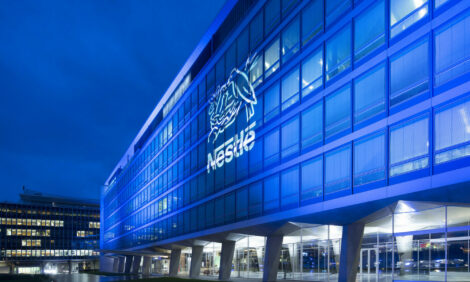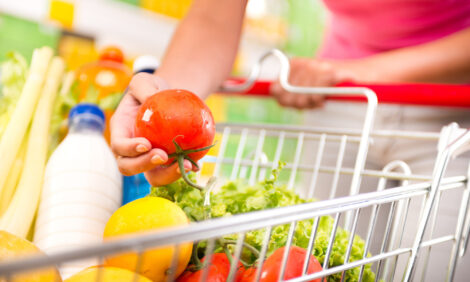



EUROTIER: Looking Outside Of Europe For Inspiration
GERMANY - European dairy farmers gathered at EuroTier last night to listen to a producer, an investor and a processor, each from different continents, give a brief summary of the dairy situation in their country. Charlotte Johnston, TheCattleSite junior editor reports.Jean-Francois Verdenal, President of the organistion European Dairy Farmers (EDF) welcomed people from all nationalities to the well attended event.
He said that during his time as President, he had come to understand that every country has their strengths and weaknesses, but that all are currently suffering from volatility in world prices.
Mr Verdenal said that he had invited speakers from Russia, South Africa and China, as he felt it was important to learn new ideas and concepts from other world market competitors.
The first speaker, Nigel Lok from South Africa, farmed 700 cows. His presentation focused on precision feeding.
"I do not run my cows as a herd, each cow is managed as an individual," he said.
He continued saying that feeding individually meant that the body condition score, health and productivity of each animal was optimal.
The next speaker was Stefan Duerr, President of the Russian company EkoNiva.
EkoNiva currently farms 125,000 ha (it the 26th largest farm in Russia) and with 8,300 milking cows.
For them rapid expansion is the key to success. With strong government support for agriculture, there are a number of subsidies available to investors. He envisages that by 2020 the company will be milking 40,000 cows.
The main challenge for the business was knowledge transfer. His company and the government, are keen to employ foreigners to educate workers.
The final speaker of the evening, Baozhu Yang, from the Beijing Sang Yuan Dairy Company, said that in China there was a lot of conflict between the government and the dairy industry.
Following the melamine tainted milk scandal two years ago, the government is keen to prove that it is actively ensuring higher standards of food safety.
Mr Yang said that whilst the government were right about the situation of the industry - the majority of milk produced has a low protein content and high baceterial counts - it has lowered standards so that more producers will be able to pass these regulations.
For example, new standards say that the total plate count of bacteria in milk must not exceed 2,000,000 cfu/ml. This is 20 times more than the what EU standards dictate.
The dairy industry is outraged with these new standards, said Mr Yang, as it believes the standards are holding the industry back.
Despite this, the safety of the public will always come first he said, and farms not adhering to these standards will be punished severely.
Concluding the evening, Rene Dobelt, Chairman of the DLG Competence Centre said that there is much to learn from other countries, and there are many opportunities for European dairy farmers to develop in the world markets.
Mr Verdenal said that the key to success for dairy producers was to listen to the cows, know the cost of production and focus on innovation.
TheCattleSite News Desk


